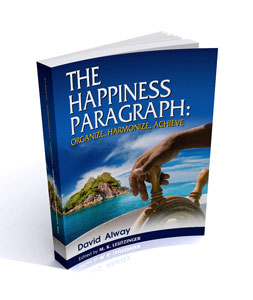Choose Yourself - by James Altucher
Summary
“Choose Yourself” is a short self-help book written by James Altucher. Altucher is a unique voice whose career has primarily been that of a highly successful entrepreneur. Additionally, though, he has written best-selling books, has run a hedge fund, and in his spare time he became a chess master!
In Choose Yourself, the author’s main thesis is that we live in a new era, the ‘choose yourself era’, in which large institutions (governments, banks, colleges) can no longer be relied upon to dispense good advice or to help the individual. Indeed, each person must look out for himself and will often be better off avoiding or protecting himself from these institutions. The author attempts to remain apolitical throughout the book and instead focuses on loosely dispensing advice regarding how each of us can choose ourselves. ‘Choosing yourself’ seems to mean, investing in yourself in a manner that benefits you - and makes you independent of these large institutions. For example - you can start a web-based business or self-publish a book. Additionally, you should try to avoid being in a position where your entire life is beholden to the decisions of just one person (such as a single business owner or customer)
The overall thesis is not well discussed and the author randomly discusses multiple topics which fit within the context of self-help. As the backdrop to his views, he discussed his own business difficulties as an entrepreneur. He describes making millions in business, but then losing it again and ‘hitting bottom’ with severe depression. When he was completely depressed and doing poorly he began implementing what he calls the ‘simple daily practice’ - which he advocates for everyone. The practice is actually not well-defined but it involves such common sense things as: getting enough sleep, eating wholesome food, and trying new things periodically. He discusses attending daily to physical, emotional, mental, and spiritual aspects of your life. He also includes a dizzying array of disconnected ‘things to do’, presumably on sequential days, but doesn’t explain the exact reason for their inclusion. His support for the ‘simple daily practice’ is that it worked for him and others, so it should work for you.
Discussion
Altucher is best when he discusses things he obviously knows well. For example, I really liked his techniques for improving your own creative capacity. They include reading a lot, including disparate sources, mental exercises to keep yourself creative, and ways of managing your schedule to keep yourself creative. The author clearly excels at being creative and feels that this is very important - and this comes through in the book.
Negative aspects of the book include its haphazard organization, lack of analytical rigor, and often glaring lack of sufficient attention paid to major definitions and theses within the book. Also, perhaps in an attempt at self-deprecating humor, the author comes off as highly neurotic. (Picture Woody Allen as an entrepreneur). He regularly calls himself stupid, talentless, and ‘nothing special’. He routinely expresses concern that people won’t like him or are laughing at him.
Returning to the positives, - the author seems very honest and introspective. The book is funny and quirky, and it is very easy to read and has a conversational style. Much of the advice given seems solid even if the underlying reasoning isn’t spelled out.
Conclusion
Choose Yourself is non-analytical and to me, poorly organized, but it is also funny and quirky and contains some good self-help advice. I also support Altucher’s overall thesis regarding the untrustworthiness of large institutions in the current era and thus the need to carefully look out for your own interests.
